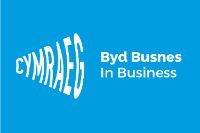Take this opportunity to make your November 5th party go with a bang! Stand out from the bonfire crowd by effortlessly reeling off the names of everything around (and above) you in Welsh!
| English | Welsh | English Pronunciation |
| November | Tachwedd | tach1-weth2 |
| Bonfire Night | Noson Tân Gwyllt | noss-on tarn gwee-llt3 |
| Firework | Tân gwyllt | tarn gwee-llt3 |
| Bonfire | Coelcerth | coil-kerrth |
| Rocket | Roced | rock-edd |
| Guy Fawkes | Guto Ffowc | git-toh folk |
| Hedgehog | Draenog | drain-ogg |
| Colourful | Lliwgar | ll3-ewe-garr |
| Toffee apple | Afal taffi | ah-val tah-ffee |
| Marshmallow | Malws melys | mal-oose mel-iss |
| Hot chocolate | Siocled poeth | shock-led poyth |
| Gloves | Menig | men-igg |
| Hat | Het | het |
1 “ch” as in “loch”
2 “th” as in “that”.
3 for the “ll” sound, place tongue behind teeth and blow gently
A Brief History of Welsh – Introduction
Firstly, Cymraeg, or Welsh, is a language native to the British Isles, originating from a Celtic language spoken by the ancient Britons. Throughout its history, it has faced numerous challenges to its existence.
Welsh is a Brythonic language, meaning British Celtic in origin and was spoken in Britain even before the Roman occupation. Thought to have arrived in Britain around 600 BC, the Celtic language evolved in the British Isles into a Brythonic tongue which provided the basis not only for Welsh, but also Breton and Cornish. At this time in Europe, Celtic languages were spoken across the continent even as far as Turkey.
The Welsh Language Society
Secondly, in the 19th century, the Welsh language still did not benefit from the increasing literacy levels amongst the general public. Moreover, whilst children were attending school, Welsh was not part of the school curriculum. English was still the dominant language as it represented administration and business in an era of imperial expansion.
In the 20th century, there was a growing recognition that the Welsh language and Welsh speakers were being discriminated against. For example, in 1942 the Welsh Courts Act formally addressed the issue of defendants and plaintiffs being forced to speak in English and ushered in a new law allowing Welsh to be used in the courts.
By 1967, a very important and crucial piece of legislation was introduced thanks to the campaigning of many individuals including Plaid Cymru and also the Welsh Language Society.
This legislation was largely modelled on the Hughes Parry Report only two years earlier which stated that Welsh should have equal status to English in the courts.
This was a pivotal moment when the prejudices ushered in during the Tudor period began to be reversed. Today the Welsh language is spoken at home, in the workplace, in the community and also in the government. In the 2011 census, over 562,000 people named Welsh as their main language.
Finally, to learn more Welsh phrases view The Welsh Gift Shop website here.
Also, to view our other Welsh words click here.


